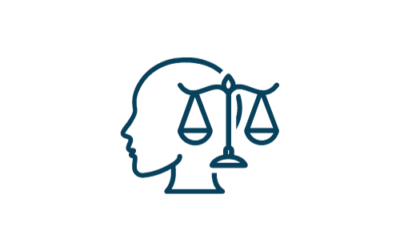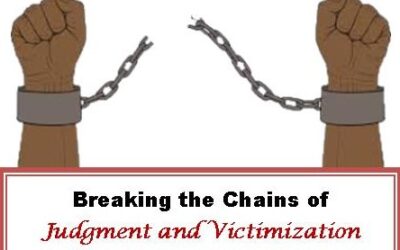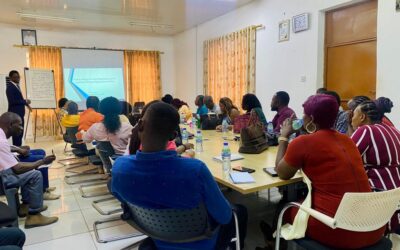The trial of the case of The State V. Momoh Kemoh Konteh, one of the most publicized corruption-related cases in contemporary times in Sierra Leone, has at last come to an end. The accused was indicted on five counts and stood trial before Justice A. H. Charm of the High Court No. 2 Freetown. Count 1 was soliciting an advantage, contrary to section 35(1) of the Anti-Corruption Act 2008; Count 2, peddling influence, contrary to section 31(3) of the same Act; Count 3, soliciting an advantage contrary to section 35(1) of the Act; and Count 4 and 5, conspiracy contrary to section 128 of the Act. The accused, defended by two seasoned legal practitioners, Hon. Manley-Spaine, technically assisted by C.F Edwards, was discharged and acquitted on all charges.
The judgment invited mixed reactions from the public, civil society organizations, the media and the Anti-Corruption Commission (ACC). Lead defence Counsel N.E Manley-Spaine said that he was not taken by surprise as, during his final submission, he had stated that the prosecution had failed woefully to prove the guilt of the accused, as was on the face of the indictment. The indictment had specific sums of monies which were allegedly solicited (US$50,000 in count 1 and US$100,000 in count 3). Since the prosecution failed to discharge the burden in proving this with respect to the accused, there remains some doubt and it is a principle of law that all doubts work in favour of the accused. The ACC boss Joseph Kamara convened a press conference after the judgment was delivered during which he stated inter alia that his “confidence in the judicial system of Sierra Leone is shaken”, advocating for a specialized division of the High Court to be created to handle only corruption related cases. The trial generated much controversy from all walks of life in which conspiracy theories tended to overwhelm logical reasoning. The lead prosecutor and director of prosecution for the ACC, Reginald Fynn, disclosed his disappointment by stating, “I am lost as to which ‘independent evidence’ could have been stronger than the documentary and international witnesses”. In a further interview with R. S. Fynn Esq. by CARL’s Court Monitors, he said that they will likely not appeal the judgment as it was founded on facts as opposed to law and appeals can only be grounded on the latter. CARL-SL now makes an objective scrutiny and appraisal of the judgment.
The Anti-Corruption Commission, in its bid to prove the guilt of the accused, called five witnesses, one of which (PW4) was only tendered. The rest of the witnesses listed on the back of the indictment were dispensed with. Judgement has been finally delivered by the presiding justice and has been received with mixed feelings from members of the public. The vast majority of the public, CARL-SL, other civil society organisations and the Anti-Corruption Commission are wondering why or how the court cleared the accused of all five counts, given the evidence that was led before the courts. There are doubts as to how the accused escaped culpability for conspiracy and peddling influence, at least. The Justice of the Superior Court of Judicature however, in part held that the absence of “independent evidence” led to the failure of the prosecution’s case for some of the charges and therefore accordingly acquitted and discharged the accused.
Evidence was led to the effect that a key prosecution witness, PW5, called the accused person whilst in Ghana and told him of their desire to establish a company in Sierra Leone that would trade in timber and that they were coming to Sierra Leone in order for the accused to help them with the necessary political connections in registering the company. From the onset, the accused person knew that there was a blanket ban on timber logging for environmental protection purposes. The accused, however, assured the investors that he would help them meet with the Vice President of the Republic of Sierra Leone and the Director of Forestry so that they could register the company and engage in the said illegal trade. There is independent evidence that they had a total of seven secret meetings in different places, including one in the office of the accused person and another in the office of the Vice President. A reasonable man will be left believing that all these meetings were geared towards putting the necessary measures in place to connect them with the right people in society.
Secondly, there was clear evidence that the accused person introduced Alex Mansaray to the investors, and was then charged with the responsibility of knocking at the doors that mattered. This, the prosecution believed, showed that the accused person and Alex Mansaray were acting in furtherance of a common design. The two did not actually demand an advantage, but the prosecution tried to establish that there was an indication of willingness to receive one as it was exemplified in the phone conversation between Anas and Alex Mansaray in which the co-accused person, who is at large, stated the reward that should be given to people who assisted them in registering the company. The prosecution also led evidence to the effect that the accused requested the sum of US$2000 from Anas (PW5) and the said amount was given to him as part payment for the registration and “clearing of the way” for the establishment of the said company. This money was to be given to the Honourable Vice President so that they could with ease establish the company, even though there was a ban on the trade. There is also independent evidence that the accused was hired by the investors to prepare and register the said company.
CARL-SL would seek further advice as to whether an “independent corroboration” is required where the defence fails or doesn’t attempt to rebut, impugn or discredit the prosecution’s witness or evidence. While the burden of proof is on the prosecution, that burden, we argue, doesn’t include the “invention” of an independent witness to corroborate evidence where the defence has either failed to rebut or has made no attempt in doing so. The learned Judge’s ratio on the question of whether Alex Mansaray and the accused were acting in furtherance of the common design for the solicitation of money and influence peddling seems to have been based on the “absence of an independent witness”, and that certainly requires further probing. This is because it is clear from the evidence of Annas (PW5) that the US$2,000 was given to the accused (Momoh Conteh) being part payment of the US$10,000 was not only for the registration of the company, but also to “clear the way”. Furthermore, in transcripts ‘A’, ‘B’ and ‘C’ played in court, the accused is quoted to have told Bilal and PW5 to take care of the Director of Forestry in order for him to give them support, what seems to be unchallengeable primary evidence that was played in court.
Finally, statutes or legislation are drafted by parliament. Despite the great care taken to ensure that statutes are clear and exact, it is certain that as time goes by legal actions will arise on points of doubt and the court will be called upon to interpret the meaning and to give judgement. According to Professor John Willis in his influential article ‘Statutory Interpretation in a Nutshell’ (1938) suggested that “a court invokes whichever of the rules produces a result that satisfies its sense of justice before it. Although the literal rule is the one most frequently referred to in express terms, the courts treat all three as valid and refer to them as occasion demands, but naturally enough do not assign any reason for choosing one rather than the other”. It is very clear that the judge applied the literal rule of statutory interpretation. The court should, in the interest of justice, take a broader look as to the intention of parliament. If we continue to look at soliciting and peddling in this manner as defined by the judge then the net will be let loose for corrupt officials to easily escape. A more objective approach needs to be taken. Despite the overwhelming evidence presented in court by the prosecution the presiding Justice stated in his judgement that there is no independent evidence before him to find the accused culpable on any of the charges.
We at CARL also think that the judge considered the issue of ‘agent provocateur’, which the Black Law dictionary defines thus: “an agent provocateur is a person who entraps another, or entices another to break the law, and then informs against the other as a lawbreaker”. This is because, following the facts of the case, this is exactly what happened. Although it was the state that brought the matter to court, it was the ‘would-be investors’ who entrapped the accused, as they were fully aware that timber exploitation was banned. In essence, the accused were incited by the al-Jazeera journalists in their film-making mission to expose corruption in the country.



